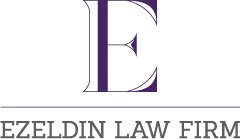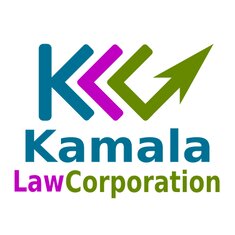Best Communications & Media Law Lawyers in Illinois
Share your needs with us, get contacted by law firms.
Free. Takes 2 min.
Or refine your search by selecting a city:
List of the best lawyers in Illinois, United States
About Communications & Media Law in Illinois, United States
Communications and Media Law in Illinois covers the rules, regulations, and legal standards that affect communication through broadcast, print, digital media, and telecommunications within the state. This field includes issues like freedom of speech, defamation, privacy, access to public records, advertising laws, licensing of broadcast stations, and the use of new technologies for communication. The law incorporates both federal rules, such as those from the Federal Communications Commission (FCC), and state-specific statutes and cases that interpret or expand on those regulations in the context of Illinois.
Why You May Need a Lawyer
Lawyers specializing in Communications & Media Law can assist individuals, companies, and organizations with a wide range of legal matters, including:
- Responding to allegations of defamation, libel, or slander, whether in news reporting, social media, or advertising
- Navigating privacy rights issues, such as the use of someone's image or likeness without consent
- Securing or challenging broadcast or telecommunications licenses in Illinois
- Drafting, negotiating, or reviewing contracts for media productions, advertising agreements, or syndication deals
- Handling copyright or trademark matters related to media content
- Assisting with compliance regarding advertising regulations and disclosures
- Addressing content takedown demands, online harassment, or false information posted online
- Protecting journalists' rights to access government information or shield sources
- Dealing with regulatory issues involving the FCC or Illinois Commerce Commission
Local Laws Overview
In Illinois, Communications & Media Law encompasses several key legal areas:
- Defamation: Illinois laws allow individuals and companies to recover damages if false statements are made that harm reputation. Online defamation and traditional print or broadcast defamation fall under these statutes.
- Illinois Freedom of Information Act (FOIA): This law gives the public the right to access records from any Illinois public body, with certain exceptions for privacy and security reasons.
- Shield Laws: Illinois has some legal protections for journalists, allowing them to protect confidential sources in certain situations.
- Right of Publicity Act: Illinois law protects individuals against unauthorized commercial use of their name, image, or likeness.
- Anti-SLAPP Laws: The Illinois Citizen Participation Act helps protect against Strategic Lawsuits Against Public Participation, intended to silence free speech.
- Advertising Regulation: Both Illinois and federal laws govern truthful advertising, especially in areas like health, financial products, and children's advertising.
- Telecommunications Regulation: The Illinois Commerce Commission licenses and oversees telecommunications providers within the state, subject to FCC oversight.
Frequently Asked Questions
What is defamation, and how can it affect me in Illinois?
Defamation is making a false statement that harms someone's reputation. Libel refers to written or published defamation, while slander refers to spoken defamation. In Illinois, you can be sued for damages if you post, print, or speak false statements about an individual or business.
Are social media posts subject to defamation and privacy laws in Illinois?
Yes, anything posted publicly on social media platforms can be subject to Illinois defamation and privacy laws. False claims, harassment, or unauthorized use of images can all potentially lead to legal action.
How does the Illinois Freedom of Information Act work for journalists?
The Illinois FOIA allows any person, including journalists, to request public records from state and local government bodies. Certain exemptions apply, such as those relating to personal privacy, law enforcement, or security.
Can I use someone's photo or likeness in my advertising in Illinois?
Under the Illinois Right of Publicity Act, you need consent to use a person's name, image, or likeness for commercial purposes. Unauthorized use can lead to liability.
What protections do journalists have for their sources in Illinois?
Illinois has a reporter's privilege, sometimes called a "shield law," allowing journalists to refuse to disclose confidential sources under certain circumstances, but courts may require disclosure in some cases.
What should I do if I am accused of making a defamatory statement online?
Consult a Communications & Media Law attorney right away. Do not delete or alter posts. An attorney can advise you on the best response and possible defenses under Illinois law.
Are there special advertising regulations in Illinois?
Yes, in addition to federal requirements, Illinois has its own rules for truthful advertising, including the Illinois Consumer Fraud and Deceptive Business Practices Act. Certain industries, such as health and financial services, face stricter regulations.
Does Illinois protect against frivolous lawsuits aimed at silencing free speech?
Illinois law includes Anti-SLAPP protections to help defendants dismiss suits intended to chill speech on public matters, though protections are not unlimited and depend on the context.
Who regulates telecommunications providers in Illinois?
The Illinois Commerce Commission regulates state-based telecommunications, while the Federal Communications Commission supervises interstate and broadcast matters.
How do copyright and trademark laws apply to media in Illinois?
Copyright and trademark laws are primarily federal, but they apply to anyone producing original content or branding used in Illinois. Violations can result in legal action from rights holders.
Additional Resources
If you need more information about Communications & Media Law in Illinois, consider these organizations and resources:
- Illinois Press Association - offers guidance for journalists and news organizations
- Illinois Commerce Commission - regulates telecommunications and utility companies
- Federal Communications Commission (FCC) - oversees national communications regulations
- Reporters Committee for Freedom of the Press - provides legal resources for journalists
- Office of the Illinois Attorney General - consumer protection and privacy guidance
- Illinois Courts and bar associations - can help with finding qualified media law attorneys
Next Steps
If you need legal assistance in the field of Communications & Media Law in Illinois:
- Start by gathering any documents, correspondence, or media related to your situation
- Write down key facts and a timeline of events, as this information will help your attorney
- Contact a lawyer who specializes in Communications & Media Law - you can search through local bar association directories or legal referral services
- If urgent, look for attorneys with experience handling similar cases, such as defamation, copyright, privacy, or telecommunications licensing
- During your consultation, ask about their experience, approach, and fee structure
- Follow your attorney's advice regarding communications, document preservation, and next steps
Seeking timely legal counsel is important - many communications and media law matters have strict filing deadlines, and early advice can help protect your rights or resolve disputes efficiently.
Lawzana helps you find the best lawyers and law firms in Illinois through a curated and pre-screened list of qualified legal professionals. Our platform offers rankings and detailed profiles of attorneys and law firms, allowing you to compare based on practice areas, including Communications & Media Law, experience, and client feedback.
Each profile includes a description of the firm's areas of practice, client reviews, team members and partners, year of establishment, spoken languages, office locations, contact information, social media presence, and any published articles or resources. Most firms on our platform speak English and are experienced in both local and international legal matters.
Get a quote from top-rated law firms in Illinois, United States — quickly, securely, and without unnecessary hassle.
Disclaimer:
The information provided on this page is for general informational purposes only and does not constitute legal advice. While we strive to ensure the accuracy and relevance of the content, legal information may change over time, and interpretations of the law can vary. You should always consult with a qualified legal professional for advice specific to your situation.
We disclaim all liability for actions taken or not taken based on the content of this page. If you believe any information is incorrect or outdated, please contact us, and we will review and update it where appropriate.
Browse communications & media law law firms by city in Illinois
Refine your search by selecting a city.














